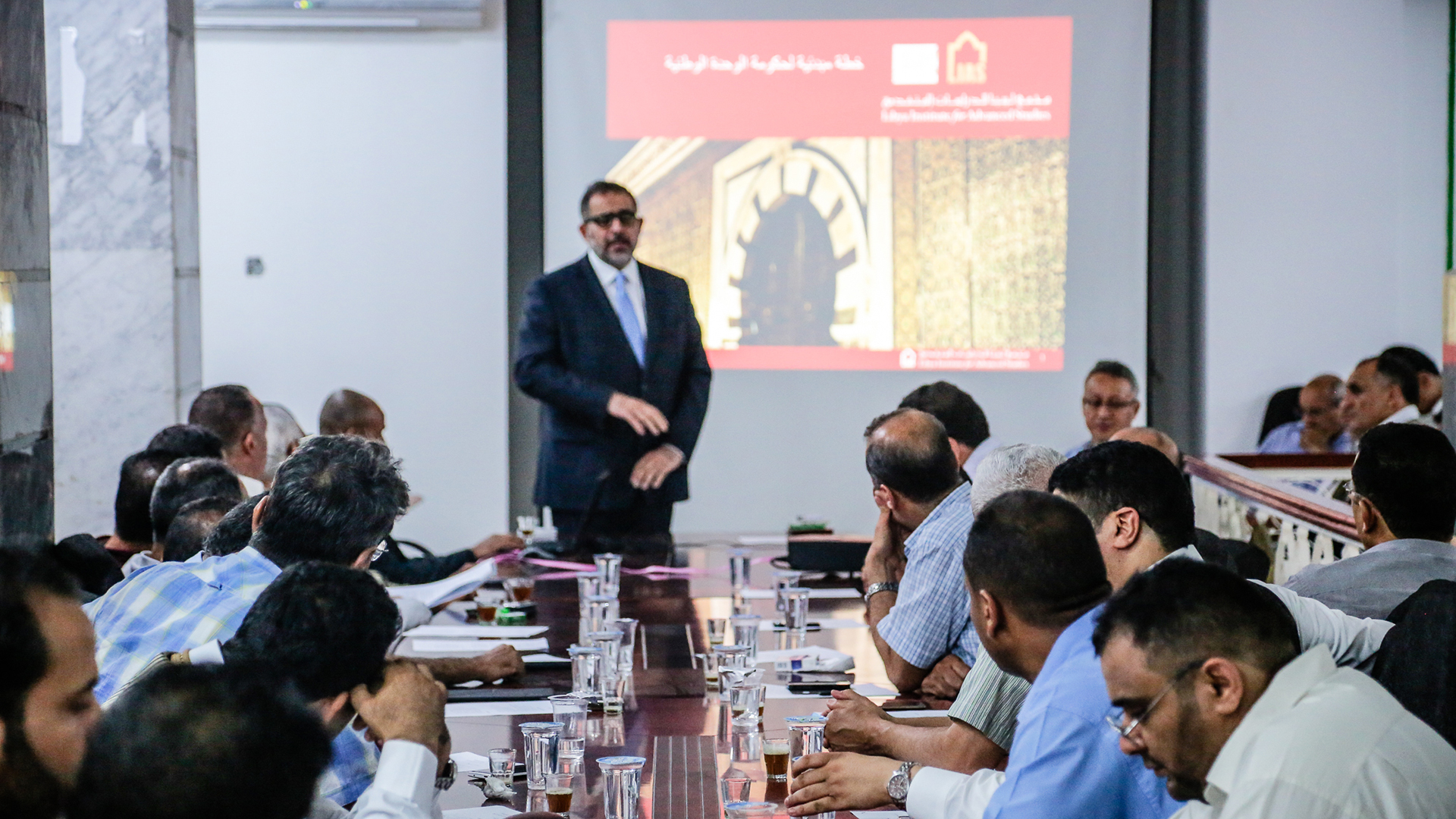Frequently Asked Questions
What is LIAS’ mission statement?
LIAS will educate and train Libya’s next generation of leaders by delivering internationally recognized programs that prepare individuals to be active contributors to their communities and country.
Is this the right time to launch such an initiative?
We are optimistic that Libya will overcome its current challenges, and one critical component necessary to do so is developing human capital to position individuals to confidently address socio-economic challenges and provide Libyan youth the skills they need for the future. LIAS was conceived to overcome several specific challenges faced by Libyan higher education by providing
- Demand-driven executive training in public administration and policy for Libya’s current and future civil service leaders
- Professional certification and training in Islamic finance and economics
- Training on renewable energy technology and policy that will facilitate Libya’s economic diversification
- Executive training for media and communications professionals
- The country’s first Libyan Studies Program that will take a fresh look at Libya’s modern history
- The country’s first security studies program that covers traditional areas of security studies like national defense along with human security and institutional reform
- An affiliated mixed-use business incubator that will provide services to start-up companies with the intent of accelerating their growth
- A venue for collective activities aimed at encouraging thinking, dialogue, brainstorming, and consultation
When was LIAS founded?
Founded in December 2012, LIAS is the first private education institution established after the Libyan Revolution.
Where is LIAS?
LIAS’ Campus, where most academic programs will be initially offered, is located in Bin Ashur, Tripoli. It will offer state-of-the-art facilities for teaching in the center of Tripoli.
How can we partner with LIAS?
LIAS pursues international partnerships to achieve a number of different objectives such as
- Offering joint academic programs with institutions overseas
- Engaging in research activities
- Facilitating student and staff exchanges
- Awarding joint or dual qualifications
Our most common forms of international agreements are Memoranda of Understanding. These are overarching agreements governing the relationship between LIAS and other institutions. They are signed to underpin a strategic institution-to-institution relationship, and/or to execute legally binding arrangements.
To discuss forming an institutional partnership with LIAS, please contact: info@liasinstitute.com
How can I apply for a job at LIAS?
LIAS employs a diversity of people to support its mission of educating the future leaders of Libya. We offer a vibrant, open-minded and friendly environment that provides job satisfaction and benefits that are aimed at making LIAS an employer of choice.
What is the general phone number and mailing address for LIAS?
Please visit the Contact LIAS page to get in touch with the appropriate department.
Are there campus tours for visitors?
Visitors and prospective students interested in visiting LIAS are always welcome. However, they should contact the admissions office to arrange campus tours at info@liasinstitute.com. A copy of visit approval form indicating day and time as well as a government issued ID are required to enter the campus
Studying at LIAS
I want to study at LIAS. How do I apply? Can you send me an application form?
For detailed information on our executive training courses, see the website of our Executive training programs.
For detailed information on our upcoming postgraduate (masters) degree offerings, see the website of our Graduate Admissions Office.
What courses does LIAS offer?
Each of our faculties and specialized centers publishes a list of upcoming courses that includes course descriptions and admissions requirements. You can find out more about upcoming course offerings by visiting the websites of LIAS schools and centers.
- Center for Libyan Studies
- Center for Stabilization Studies
- Center for Strategic Studies
- Center for Youth and Gender Empowerment
- Libya School of Government
- School of Management and Innovation
- School of Media
- Sustainability Center
What are the admissions requirements for students?
Each of LIAS’ courses have specialized admissions requirements. You can find out more about specific requirements by visiting the websites of LIAS schools and centers.
- Center for Libyan Studies
- Center for Stabilization Studies
- Center for Strategic Studies
- Center for Youth and Gender Empowerment
- Libya School of Government
- School of Management and Innovation
- School of Media
- Sustainability Center
How much does it cost to study at LIAS?
Tuition fees vary by course. You can find out more about the costs of specific courses by visiting the websites of LIAS schools and centers.
- Center for Libyan Studies
- Center for Stabilization Studies
- Center for Strategic Studies
- Center for Youth and Gender Empowerment
- Libya School of Government
- School of Management and Innovation
- School of Media
- Sustainability Center
What advising and support services are available for LIAS students?
LIAS students are eligible to utilize extensive advising resources offered by the LIAS Career Center.
What distance learning programs are offered at LIAS?
Our regional teaching centers bring educational opportunities to students in outlying parts of Libya and offer credit and continuing education programs to meet almost any need. Our online programs provide opportunities for students at home, at work, or in their neighborhoods. You can find out more on our distance learning opportunities on our Regional Teaching Center page.

LIAS was founded in 2012 in response to the need for quality, private education options in post-Revolution Libya.

Our downtown campuses offer state-of-the-art centers for teaching in the center of Tripoli


